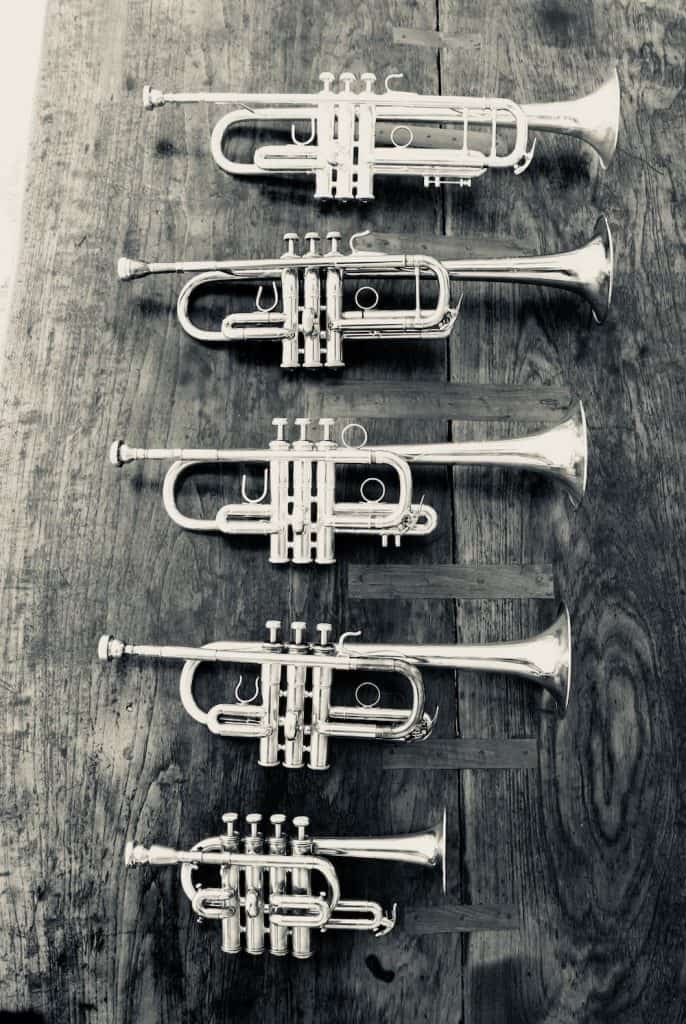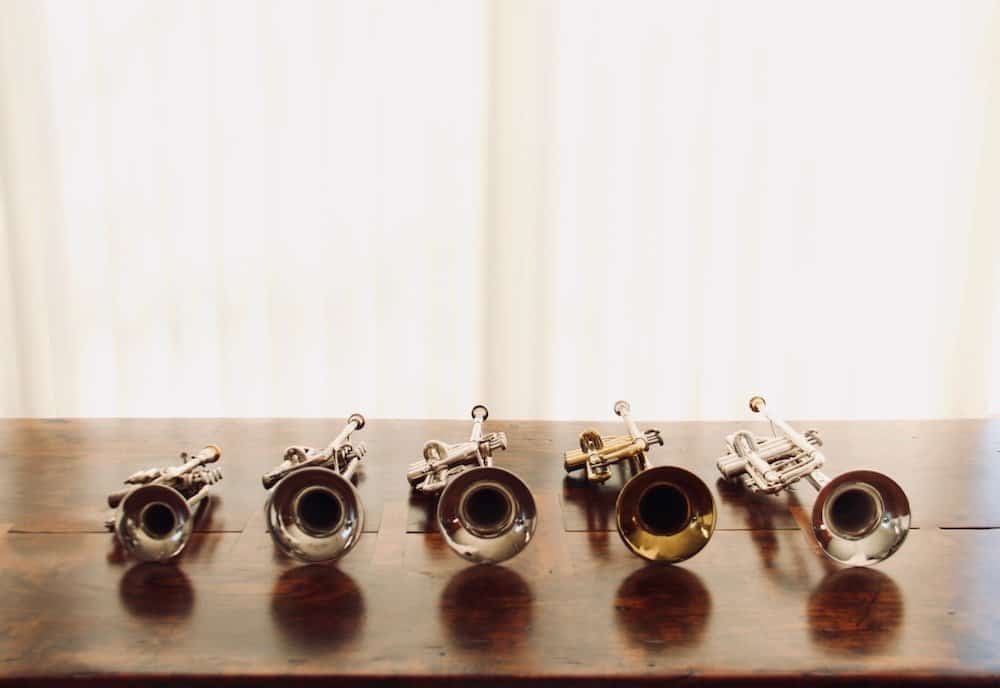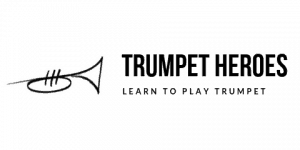“Nothing to Practise” on the Trumpet….?
…Pants on Fire?
If you are an interested parent and the young player in your house claims that they don’t have any trumpet practise to do, be patient. It’s not like your child is lying, it’s just that they’re wrong. There is always something to practise and once their chops are busted (once their embouchure has approached its natural limits) they can always sing their parts, count and clap rhythms, learn some music theory, etc .
Here’s how to approach trumpet practise, even if it feels like there is nothing to practise.

Private Trumpet Lessons
This is a good time to mention private lessons. If you’re really motivated it’s the best way to get good at any instrument. It’s often possible to find someone with just a few more years of playing to help but the gold standard is to find a professional Trumpet player who gives lessons. These lessons will cost somewhere between a decent union wage and what a car dealership charges for shop time. (That sounds like a subject for a future post.) A Middle School Trumpet player would benefit from lessons with a good High School player who, in turn, might want a College player etc. If you don’t know somebody, ask your band teacher for some ideas.
Most Middle and High School Trumpet players don’t get private lessons unless they’re in a competitive setting but we can all use them. College and University players are generally assigned a teacher who is a professor and has some sort of professional Trumpet playing activity and/or history. Professional players are always trading helpful tips and frequently ask each other to listen to something, for a lesson, or ideas on how to approach some challenge in their playing.
Long Tones on the Trumpet
I digress. the first thing to trumpet practise is making a good sound. There are many different “sounds” you can choose to make with a Trumpet but they’re all approached by shortening the distance between what you’re hearing and what you want to hear. In any style with any equipment players agree that playing long tones is a good idea. The idea is to take large breaths and use them to produce a rich sound. That’s a short statement about which entire books have been written, so take my word for it.
As with any other sort of playing it’s important to take breaks. It isn’t a good idea to see if you can rotary breathe your way to Kenny G’s world-record long note on your Trumpet. You’re better off to let your breath run out and take a break. For now just believe that this is good for you unless it hurts. Recordings of good and great Trumpet players can really help with identifying a target sound to practise. When all of the variables come into it there are lots of different tone qualities that sound good in various contexts. Try for a full (not nasal) tone. Don’t mess with vibrato or any other weirdness. Just play long, steady rich tones.
Trumpet Practise Method Books
The Max Schlossberg Daily Drills trumpet practise book is so old that I think it’s now free on the interweb. Don’t forget to take breaks. He didn’t waste ink writing the rests and breaks but I’m sure he’d like you to take them. There are reams of Trumpet exercises in method books that can be found, borrowed or bought. Don’t go crazy on them. I promise to make a short list of the best first Trumpet Method Books soon.
Scales on the Trumpet
Learn some scales. Once you can play a scale without getting the notes wrong it’s time to really learn it. That means things like playing it in more than one octave, play it with different articulation patterns, play fragments, play it with a variety of dynamic affects and, most importantly, memorize it.
Yes, commit each and every scale to memory as part of trumpet practise.
Learning to play these scales is most of the work so why not finish the trip? Once they’re committed to memory they become really useful to you. You begin to recognize them in the pieces you’re playing and tricky passages suddenly become simple. I first noticed this in high school when Mr. Cory put Gustav Holst’s Second Suite in F in front of us. Anybody who had a concert F scale under their fingers flew through that first movement. Others didn’t.
Which scales? Start with a concert Bb major scale if that’s where your band teacher is headed. If you’re well past that, learn all of the major scales first and get so that you can play them anywhere on your Trumpet that isn’t too high. My plan of attack for trumpet practise would be to make sure that the concert Bb major scale is good then start working your way out into flats and sharps. I’m going to switch out of Concert Pitch now, so that Concert Bb scale is our C scale.
Next, learn our G scale (Concert F. If that’s confusing read this…). Play that scale from the bottom of the Trumpet range. These really low notes don’t show up very often in beginning band music but they’re really good for Trumpet players to play and practise. That G scale has just one sharp, F#. Next go to our F major scale which has only one flat, Bb. The problem with this scale is that if you’re a beginner you’ll probably find that some of the notes are too high. That might have happened in the C scale too. Our strategy for those high notes is to play them an octave below where they are printed (or imagined). Start on the F and go as high as you’re comfortable then switch down an octave and play the rest of it. If you have a friend who plays another instrument, get them to help you find these notes. Remember that the right fingerings don’t guarantee right notes. That’s why my Beginner’s Trumpet Fingering Chart looks the way it does.
Keep Learning Scales on the Trumpet
Keep going on the major scales until you know most of them pretty well. You’ll eventually need even the silly ones (like F# Major) because there is music out there in that key. A lot of popular music is in keys that are easy for guitarists and difficult for us. C’est la guerre.
Next you might want to learn some minor scales. That would be a great idea for part of your trumpet practise. Make sure that you understand the difference between Natural Minor, Melodic Minor and Harmonic Minor scales. The are some good sites for learning this kind of thing. Here’s one.
If you play, or would like to play in a jazz band or stage band you will want to learn some other scales. Depending on what your teacher/director/leader wants you to do you will want to learn a Blues scale in several keys, a Dorian scale in several keys and/or major and minor Pentatonic scales in several keys. As with Major and minor scales you could eventually need these in all keys, so why not start now during trumpet practise? These scales are related to the Major and minor scales but do sound distinctive and are used as building blocks for a lot of the music those bands play. They are also really helpful in the process of getting comfortable with improvisation – which brings me to my next point …
Practising Trumpet Improvisation
Practise trumpet improvisation. That’s a simple enough instruction. Wars have been fought over how to approach that simple instruction so I’ll simply refer you to the vastness (or half-vastness) of the internet on that one. All I’ll say on the subject is that if you can even imagine a world in which you might improvise on the Trumpet, start today.
If that seems scary, and even if it doesn’t, try playing melodies that you recall – tunes you like, tunes you sang when you were little, or Happy Birthday or whatever. Play them in more than one key as part of your trumpet practise. Get good at playing by ear – its a life skill and is unbelievably good for your brain.

Music Theory
This is a good time to bring a little Music Theory into your trumpet practise. Since our scale learning is going to reach further into the sharps and flats we might as well look at how they work. There are some really good sites for learning this stuff, but for now just know that key signatures and scales work together. Minor scales are related to major scales by key signature. The sharps or flats in a key signature always occur in the same order and you can identify the key by looking at that key signature.
Trumpet Parts From Ensembles
If you’re in a band or orchestra you won’t go too long without some Trumpet parts to play. Assuming that you have some of that music you ought to make sure you can play it. That means practicing it until you can play it well. If something is difficult for you because the notes are just coming at you too fast, slow it down. You’ll hear which parts are not going well so concentrate your efforts on those spots. Sometimes there’ll be just one little lick that you get stuck on. Take it apart until you can play all of the note changes in it and then gradually speed it up until you have it. That might not happen in one day. Your mind and body need rest and sleep as much as they need repetition and hard work.
If you don’t have band or orchestra parts, or if you want some variety there are lots of free sources on the internet. A links, or resources page is on the way but in the meantime use whatever mad search skills brought you here.
Trumpet Solos
There are books you can buy that have solo Trumpet parts and recorded accompaniments. If you have access to method books, hymn books or almost any song book those can be fun to play as trumpet practise. If you live in the middle of the desert but have a good internet connection there is no limit, just don’t push too hard … this is more of a marathon than a sprint.
A few decades ago McDonalds (of Hamburger fame) used tray liners that had the music to their jingle printed on them. I grabbed a stack for my students to use for transposition exercises. It matters a lot what you play, but it matters more that you play a lot.
It matters a lot what you play, but it matters more that you play a lot.
Trumpet Practise: Start With That
We’re not done yet, but that should keep you busy with trumpet practise for a while.
